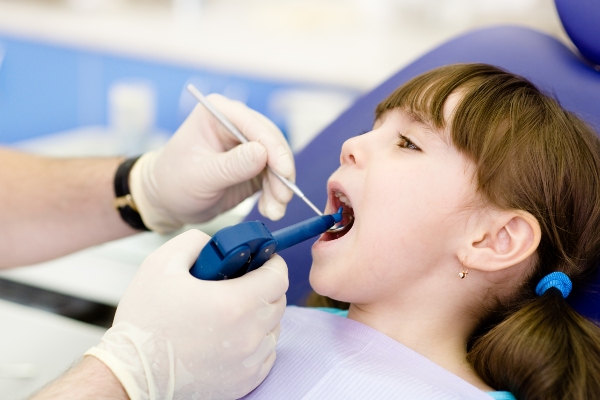Pediatric Dentistry Procedures: Baby Root Canal

The most common procedure performed in pediatric dentistry is baby root canal therapy. Many parents are shocked when they find out their child needs a root canal. Most people think of it as a procedure for adult teeth, but baby teeth also require root canals when they are infected or seriously damaged.
Why pediatric dentistry uses baby root canals to save teeth
Baby teeth are a lot more important than most people think. Pediatric dentistry care strives to save baby teeth when possible since they serve as placeholders for permanent teeth. Baby teeth falling out earlier than they should leads to permanent teeth erupting improperly. The result of that is misaligned or crooked teeth, and that makes it harder to remove plaque from surfaces.
Plaque contains bacteria and the acids they produce. These acids eat away at enamel and lead to the formation of tiny holes called cavities. Tooth decay at this point can be easily treated with dental fillings, but when left untreated, it will continue to expand until it reaches the pulp chamber where the blood vessels and nerve of the tooth are contained. These soft tissues play an important role in the development of teeth but they are no longer needed once the tooth is fully developed. Once the pulp chamber is compromised, oral bacteria can make it there and infect the tissues.
In order words, a tooth falling out prematurely makes a child more vulnerable to teeth alignment issues and tooth decay. As a result, the child is more likely to need more pediatric dentistry treatments like root canals and fillings in the future. Teeth falling out prematurely can also lead to problems with speech development. Thankfully, with the help of a pediatric dentist, a baby root canal can be performed to save any teeth that are in bad shape.
Outlined below are a few of the signs that indicate a need for a baby root canal.
- Pus coming from around a tooth
- A badly-broken tooth
- Tooth pain that worsens at night
- A fever
- Bad breath
- Increased sensitivity to hot and cold foods
How the procedure is performed
Root canals have a bad reputation as some scary procedure that is painful, but that is simply not the case, especially in a pediatric dentistry setting. Patients rarely experience any pain when root canals are performed since a local anesthetic is injected into the tissues around the tooth and pediatric dentists make an extra effort to keep the child comfortable.
Once the local anesthetic has been administered, the pediatric dentist will use a small dental drill to make a hole into the child's tooth. The dentist then uses files to clean out the soft tissues in the pulp chamber. If the tooth's roots are infected, they are cleaned as well.
To finish, the pediatric dentist closes up the damaged tooth with a rubbery material called gutta-percha, and the tooth might be protected with a stainless crown. These are prefabricated crowns that are mostly used for children, so the child gets their permanent crown right after the root canal.
Find out more
Call or visit us to set up an appointment with a pediatric dentistry practice.
Request an appointment here: https://www.hvkidsmiles.com or call Hudson Valley Pediatric Dentistry at (845) 363-4177 for an appointment in our Middletown office.
Check out what others are saying about our services on Yelp: Read our Yelp reviews.
Recent Posts
Cavities are a common dental health issue, and as kids learn to care for their teeth, they are often more prone to developing them. Dental fillings for kids can help avoid future oral health complications and protect their young smiles. Here are the basics of the treatment process that you should know as a parent…
Curious about dental fillings for kids? Read on to learn more. As your kid ages, you most likely have many questions about their overall health. Questions like "Are dental fillings for kids necessary?" or "What happens to baby teeth with nontreated cavities?" These are crucial questions to think about, and this article addresses them so…
Dental fillings for kids provide many advantages. It is natural for parents to ensure their children’s comfort. Fillings can improve a decayed tooth’s function and appearance. It can also keep more dental decay at bay. Here are the details on how dental fillings for kids can prevent dental decay from worsening.All parents want their children…
Dental fillings for kids are simple, straightforward procedures from pediatric dentists that help preserve teeth, promote healthy development, and prevent other issues. It is natural to be nervous about taking your child in for dental procedures, especially tooth decay treatments. In addition to knowing your child is in good hands, understanding the procedure and why…


